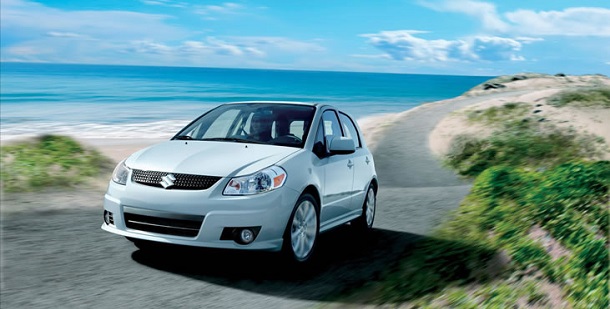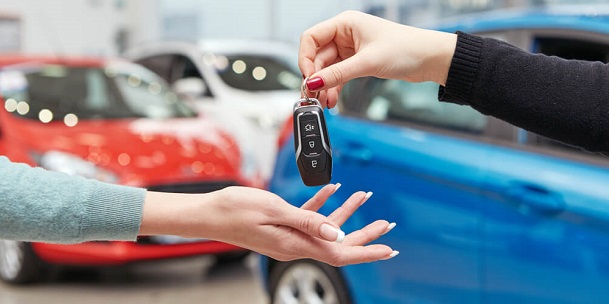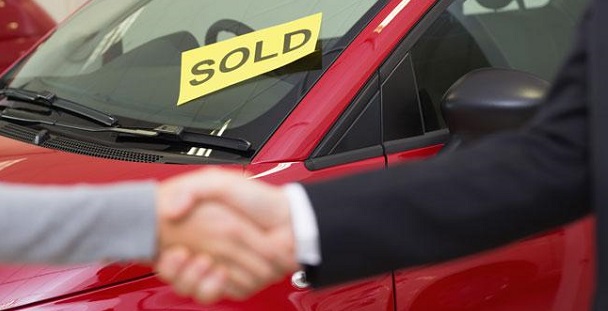
When you are in need of a new vehicle but don’t have the funds available to purchase it outright, it can be very stressful and frustrating, particularly if a car is essential for your day to day life. Luckily there is a range of options available to individuals who find themselves in this tricky situation, including car hire purchase, which is one of the most popular car finance options available.
Car hire purchase allows you to spread the cost of a new vehicle over an agreed period of time, allowing those with limited upfront cash to buy the car they want immediately, without having to spend lots of time saving for the purchase.
This guide will explain cover everything you need to know to decide if car hire purchase is right for you, including how car hire purchase works, who can utilise it and the advantages and disadvantages.
What is car hire purchase?
Car hire purchase is a very popular option for those looking to buy a new car, with around one-fifth of new car sales using car hire purchase to fund the vehicle. It is an agreement that is usually arranged with your car dealership, but also available through various brokers and lenders.
You will pay a deposit on the amount of the car you are buying, and then make monthly payments over a predetermined period of time until the full value of the car is paid off. Car hire purchase agreements offer a bit of flexibility, allowing you to either pay a high deposit and pay off the balance quicker, or spread the cost over a more extended period of time and pay a small deposit.
Car hire purchase works similarly to a personal unsecured loan or car loan, in the sense that you make monthly repayments towards the cost of the car. However, there are some pretty major differences in how they work. When buying a car using hire purchase finance, you are essentially hiring the vehicle for a period of time, with the option to purchase it and the end of the finance term.
While you are making the monthly payments, the finance company will be the legally registered owner of the vehicle, even though it is in your possession. Once the final payment has been made, and the full value has been cleared, you will then become the registered owner of the car. During the hire purchase agreement, you cannot sell the vehicle without the lender’s permission, and if monthly payments aren’t kept up, then they can repossess the vehicle to cover the cost of the loan.
As the finance company has the right to repossess the vehicle if necessary, the risk for lending is far lower than with a personal car loan. This can mean that individuals with an adverse credit rating that wouldn’t be approved for a personal loan, could be approved for a hire purchase agreement. Interest rates associated with hire purchase agreements can vary greatly, so it is essential to shop around and compare the APR of the various deals on offer at the time.
Before deciding if car hire purchase is the right option for you, consider the alternative finance options available for buying a new car, and be sure to choose the best option for your current financial situation.
How does car hire purchase work?
In most cases, car hire purchase agreements are a made up of a deposit payment and a series of monthly instalments that are paid over a predetermined period of time. The length of the contract can be agreed with the dealer or finance provider, and the amount of the monthly payments are dependent on the value of the car being purchased and the interest rate. Typically, the deposit is 10% of the value of the car, although in some cases this can be lower or higher depending on the lender.
Car hire purchase can be used to fund either a new or used car, with many dealers and manufacturers offering special offers on new models. The value of a used car depends on the age of the vehicle, its condition and how many miles it has covered.
In most cases, whether you are financing a new or used car won’t make any difference to the interest rates offered, and these can vary significantly between providers. Typical interest rates for hire purchase agreements is between 4% and 8%; some providers may even offer a 0% deal if you put down a hefty deposit upfront.
At the end of the car hire purchase agreement, once all repayments are made, you will often have to pay one final fee to own the car outright. This fee is known as the option to purchase fee and typically costs around £100 to £200 to cover the cost of transferring ownership from the lender to you. If you want to end a car hire purchase agreement earlier than planned, you can ask the lender for permission to sell the car and use the proceeds from the sale to pay off the remaining balance.
Another option for ending a car hire purchase agreement early is known as voluntary termination and is possible thanks to the Consumer Credit Act. It allows you to terminate a hire purchase agreement early if you have repaid at least half of the total amount owed. You will be able to end the agreement and return the vehicle to the company. This is great if you are no longer in a position where you need the car, can’t afford to keep up the repayments or just looking to cut costs and save some cash. The vehicle will need to be in good condition when it is returned, or you will have to pay for any repair work that needs to be done.
If you do decide to end your hire purchase agreement using voluntary termination, be sure to get everything regarding the ending of the contract in writing. This will protect you from anyone trying to claim that you have defaulted on your payments and affecting your credit score.
Who can get a car hire purchase agreement?
Car hire purchase is an excellent option for individuals looking to own the car outright at the end of the contract period, but don’t have the funds available to purchase a vehicle outright immediately. Unlike using a personal loan to buy a car, car hire purchase is available to those with a poor credit rating because the vehicle itself is used as security for the loan amount. This means it is less risky for lenders as they can simply repossess the car to cover the cost of the loan if the repayments aren’t being made.
Most dealers will offer car hire purchase to anyone over the age of 18; you don’t need a full valid driving licence to obtain car hire purchase, only if you want to drive the vehicle alone. You will need to provide proof of identification to get car hire purchase; this can be in the form of a passport or provisional driving licence. You will need to be able to pay the upfront deposit amount, as well as be able to prove your income is enough to reasonably make the monthly repayments.
Keep in mind that as well as being able to afford the monthly repayments for the car hire purchase agreement, you will also need to pay for the other charges associated with running a car, including insurance, tax and fuel. Be sure that you can afford every aspect of being a car-owner before purchasing a vehicle.
Advantages and disadvantages of car hire purchase
It is essential to weigh up the pros and cons of car hire purchase before making a final decision on if it is the right option for you.
The advantages of car hire purchase are:
- Payment terms can be flexible to help fit around your monthly budget.
- Payment terms are usually between one and five years, but the longer the term, the more interest you will pay.
- Low deposit of around 10% of the value of the car.
- Fixed interest rates for the agreement duration, so you always know exactly what you need to pay every month.
- End the term early and buy out the car by paying the remainder of the loan off early.
- Extra protection on the vehicle. If there is an issue with the new car both the finance company and dealer are liable.
- Spreading the cost means you can get a new car that you usually wouldn’t be able to afford.
- You become the legal owner of the vehicle after all repayments have been made.
- Individuals with poor credit ratings are often accepted for car hire purchase finance as the vehicle is used as collateral.
The disadvantages of car hire purchase are:
- Monthly repayments are often higher than other car financing options.
- You are not the legal owner of the car for the duration of the loan.
- Interest rates are often higher than getting a personal car loan.
- You are not allowed to modify or sell the car during the contract term without permission from the finance provider.
- If you don’t keep up with the monthly payments, the finance company can repossess the vehicle.
- If you fail to make the monthly repayments, your credit score will be negatively impacted.
Some car hire purchase providers will offer 0% interest rates if you can put down a higher deposit. If you have the funds available to pay a large deposit upfront, this can be a great option or spreading the remaining cost of the car without paying high interest rates.
Alternatives to car hire purchase
Car hire purchase is just one of the options available for spreading the cost of buying a vehicle; there are other car finance options, as well as other credit options that can be used to purchase a car.
It is essential to properly compare and understand all the options available before deciding which is right for you. Some alternatives to car hire purchase are:
Personal Contract Purchase: This works similarly to hire purchase agreements; however, the monthly payments are often much lower, while the total amount paid can end up being higher. Personal contract purchase agreements are based on the difference in prices between the car being brand new, and the predicted value of the car at the end of the hire period. The predicted value of the vehicle is based on the annual mileage limit that is predetermined at the beginning of the agreement.
At the end of the hire period, you have the option to trade in the car and start a new agreement for a new car, give the car back and pay nothing further, or make a final balloon payment to cover the resale price of the car and keep it.
Personal Contract Hire: This option is different from hiring purchase and personal contract purchase as at the end of the agreement there is no option to keep the vehicle. You pay a dealer a fixed monthly payment to cover the use of the car, including services and maintenance, and you agree to keep within a specific mileage limit every year.
At the end of the agreement, you simply hand the car back to the dealer. This is a great option for those looking to use a car but not interested in every owning it outright; it is also great for those who wish to change their car often.
Car Loan: Car loans work very similarly to a personal loan and are used specifically for the purchase of a vehicle. They allow you to borrow the total value of the car and purchase it outright, and then just pay off the loan amount over a set period of time plus interest.
This can often work out cheaper than car finance options, as well as allowing you to be the legal owner of the vehicle immediately. Car loans often use the vehicle as security against the loan amount, meaning some providers will accept those with lower credit scores as there Is less risk involved.
Credit Card: Another alternative is to use a credit card to pay for a vehicle outright. This will make you the legal owner of the car immediately, although interest rates and monthly repayments can be higher than other options. Credit card rates vary hugely, so it is essential to shop around to get the best interest rates. Purchasing a car on a credit card will also give you extra protection in case something goes wrong.
To get the added protection of purchasing on a credit card, you only need to pay at least £100 of the vehicle on the card. You can split the cost of the car using various methods while still getting credit card protection.



